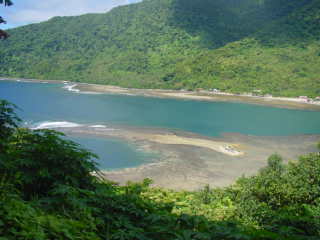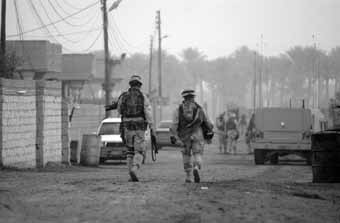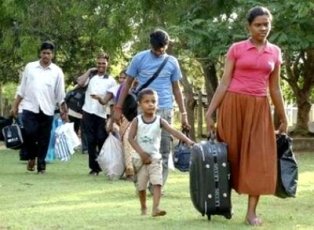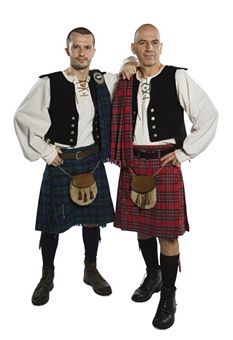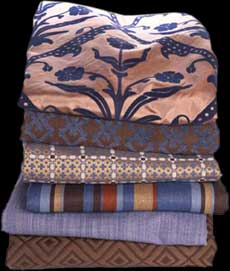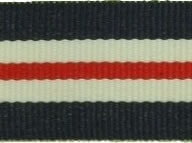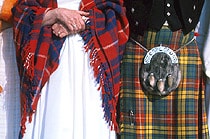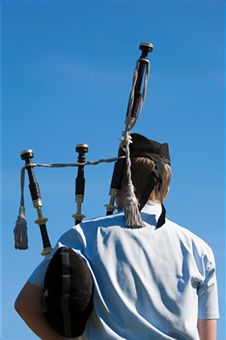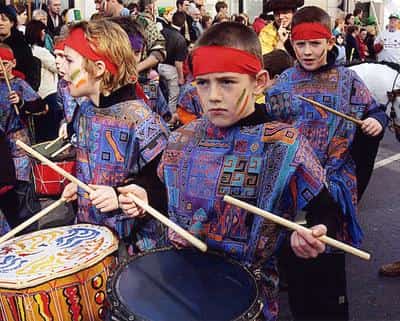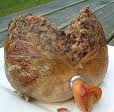اسکاتلند
Scotland
Scotland is the country that is located on the northern part of the island of Great Britain. The Scottish people are one of the four main nationalities of the British Isles, together with the English, the Welsh, and the Irish. Scotland and its people have played an important part in the history of the English-speaking world.
Scotland can be roughly divided into two main regions. The lowland areas, in the southern part of Scotland, contain most of the population and the two main cities, Edinburgh and Glasgow. Most of Scotland’s agriculture and industry are located in the lowland areas. The Highland areas, together with the islands that lie off the coast of Scotland, are not so heavily populated. The lakes and mountains of the highlands are known for their beautiful scenery.
One of the main themes of Scottish history is conflict with England. During the Middle Ages, the English and Scottish kings were often at war. Around the year 1300, the Scots repelled some invasions from England. During the 1600s, though, Scotland and England had the same king, and the countries were officially joined as “the United Kingdom” in 1701.
For people in the highlands of Scotland, the eighteenth century was very difficult. Most people worked as farmers on land that was owned by a few wealthy landlords. The landlords decided that they could make more money on the land if they evicted the farmers, so many of the farmers were forced to leave. The highlanders rebelled against the King in 1745, but they were defeated. During the eighteenth and nineteenth centuries, many people left the highlands of Scotland. They moved to the United States, Canada, Australia, and New Zealand. During the nineteenth century, Scotland was the first country to have universal public education for children. The country produced a great number of famous scientists and inventors during that time.
Scotland is famous for its national costume. This costume includes the “kilt,” which is a knee-length skirt worn by both men and women. The kilt is made from a fabric that contains stripes of different colors and widths, which cross over each other to produce a pattern that is called a “tartan.” In the Scottish highlands, groups of related families, called “clans,” have their own unique tartan.
Another famous part of Scottish heritage is the musical instrument known as the bagpipes. The bagpipes have a distinctive sound that is easily recognized. Bagpipes were originally played to intimidate enemies in battle, but today Scottish people play the bagpipes at parades and other celebrations. People of Scottish heritage around the world celebrate their heritage on January 25th of each year. This day celebrates the birthday of Robbie Burns, the famous Scottish poet. People celebrate this day at parties, where people eat a famous Scottish food called haggis.
Today, Scotland remains part of the United Kingdom, but some Scottish people would like Scotland to become independent. Whatever the Scottish people decide, their country will remain a unique and interesting place.
Scottish:
relating to Scotland or its people
the Welsh: [plural]
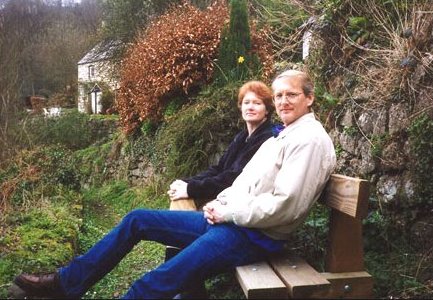
scenery:[uncountable]
natural surroundings, esp. in beautiful and open countr
Another Source:
the natural features of a particular part of a country that you can see, such as mountains, forests, deserts etc
The best part of the trip was the fantastic scenery.
mountain scenery
the scenery around Ghamsar is beautiful
Common Errors:
Wrong: What a beautiful scenery!
Correct: What beautiful scenery!
Scenery is an uncountable noun.
theme:
▶SUBJECT◀
the main subject or idea in a piece of writing, speech, film etc
The book’s theme is the conflict between love and duty.
main/central/major etc theme
Campbell has made health care a central theme in his campaign.
Nature is a recurrent theme (=a theme that appears repeatedly) in Frost’s poetry.
Most of Kurt’s other pictures were variations on the same theme .
Another Source:
the subject of a talk, piece of writing, etc.:
His stories are linked by the theme of self-discovery.
The theme of this year’s journalism conference is the question of censorship
repel:
past tense and past participle repelled present participle repelling
to make someone who is attacking you go away, by fighting them
The army was ready to repel an attack.
Check this word in your own dictionary too, you may see these meanings:
1
[transitive] if something repels you, it is so unpleasant that you do not want to be near it, or it makes you feel ill
ᅳsee also repulsive The smell repelled him.
2
[transitive] to make someone who is attacking you go away, by fighting them
The army was ready to repel an attack.
3
[transitive] to keep something or someone away from you
a lotion that repels mosquitoes
4
[intransitive and transitive] technical if two things repel each other, they push each other away with an electrical force
ᅳopposite attract
Two positive charges repel each other.
Look at this link too and search “repel” in :
invasion:
hen the army of one country enters another country by force, in order to take control of it
invasion of
the invasion of Normandy
the invasion of England by the Normans in A.D. 1066
cultural invasion
highland:
also Highland
relating to the Scottish Highlands or its people
Highland pipers
landlord:
a man who rents a room, building, or piece of land to someone
ᅳsee also landlady
evict:
to tell someone legally that they must leave the house they are living in
evict somebody from something
They were unable to pay the rent, and were evicted from their home.
be/get evicted
They refused to leave and were forcibly evicted (=evicted by force) .
attempts to have them evicted
he was evicted for nonpayment of rent
ᅳeviction
The family now faces eviction from their home.
rebel:
to oppose or fight against someone in authority or against an idea or situation which you do not agree with
Another Source:
to oppose or fight against someone in a position of control:
The people have rebelled against their foreign rulers.
children who rebel against authority/against their parents
kilt:
a type of thick skirt made of tartan (=material with a pattern of lines and squares) that is traditionally worn by Scottish men
ᅳkilted adjective
fabric:
cloth used for making clothes, curtains etc
ᅳsynonym materialour new range of fabrics and wallpapers
cotton/silk/synthetic etc fabric
printed cotton fabric
satin is a soft, shining fabric
imported fabrics
stripe:
a line of colour, especially one of several lines of colour all close together
a shirt with black and white stripes
vertical/horizontal stripes
Another Source:
a band of color, among one or more other colors:
Tigers’ coats are tawny with black stripes.
a shirt with blue and white stripes
tartana:
traditional Scottish pattern of coloured squares and crossed lines, or cloth, especially wool cloth, with this pattern
American Equivalent:
plaid the MacGregor tartan (=the special pattern worn by the MacGregor family)
ᅳtartan
adjective
a tartan scarf
clan:
a large group of families that often share the same name
the Campbell clan
Another Source:
(esp. in Scotland) a group of families, all originally descended from one family and all usu.
having the same family name.
In the past, each clan had a chief and wore cloth decorated with a particular pattern (a TARTAN): the McIntosh clan
bagpipes:[plural]
a musical instrument played especially in Scotland in which air blown into a bag is forced out through pipes to produce the sound
ᅳbagpipe adjective
distinctive:
having a special quality, character, or appearance that is different and easy to recognize
a rock band with a distinctive sound
intimidate:
to make someone feel worried and not confident
The whole idea of going to Oxford intimidated me.
parade:
a public celebration when musical bands, brightly decorated vehicles etc move down the street
a victory parade the St Patrick’s Day parade
haggis:
a food eaten in Scotland, made from the heart and other organs of a sheep, cut up and boiled in a skin made from the sheep’s stomach
فهرست درس های سطح 3
این متن در تاریخ 27 دی 1398 توسط مشاور سلام زبان ویرایش شد.


